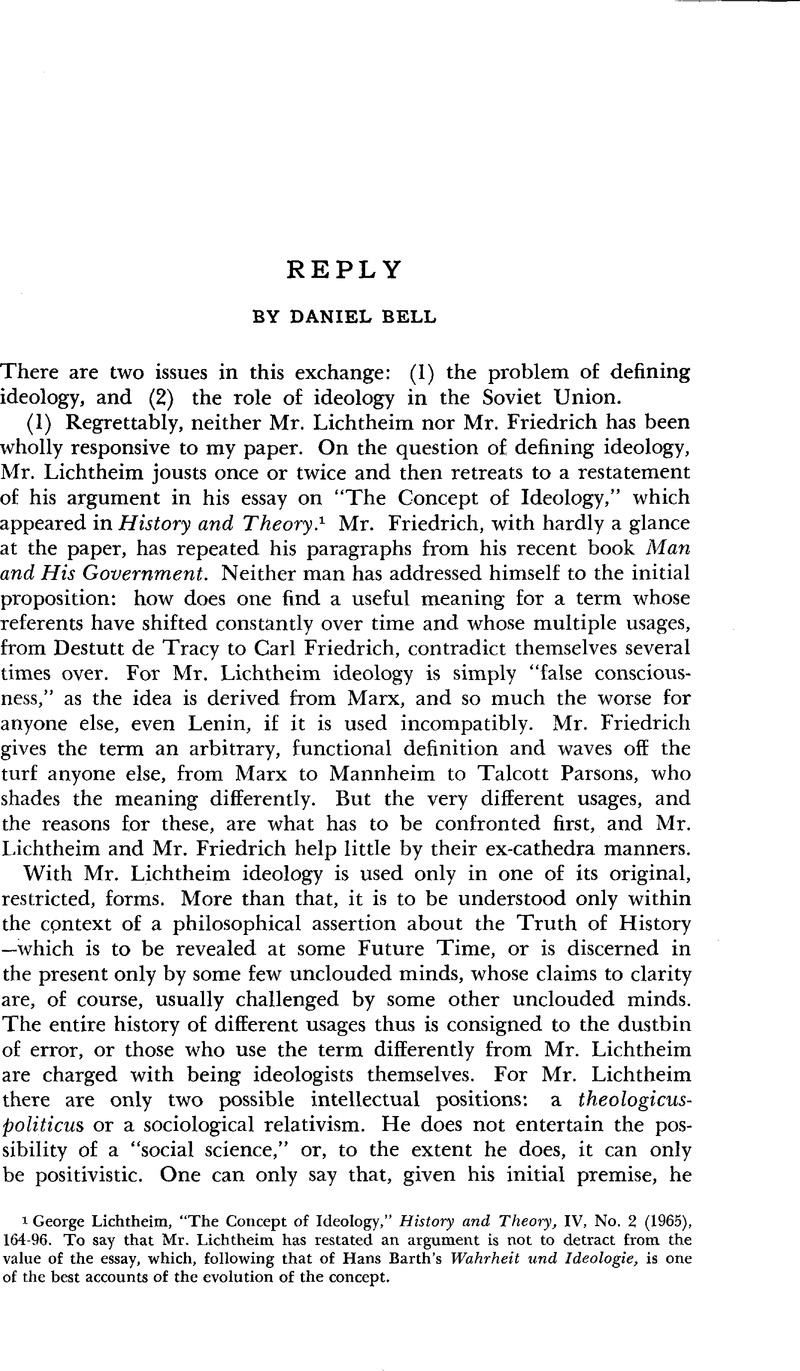No CrossRef data available.
Published online by Cambridge University Press: 27 January 2017

1 George, Lichtheim, “The Concept of Ideology” History and Theory, IV, No. 2 (1965), 164–96Google Scholar. To say that Mr. Lichtheim has restated an argument is not to detract from the value of the essay, which, following that of Hans Barth's Wahrheit und Ideologic, is one of the best accounts of the evolution of the concept.
2 Ernest, Nagel, The Structure of Science (New York, 1961), p. 1961 Google Scholar.
3 Reinhard Bendix, “The Age of Ideology: Persistent and Changing,” in David, Apter, ed., Ideology and Discontent (New York, 1964), p. 1964 Google Scholar.
4 Daniel, Bell, The End of Ideology (Glencoe, 111., 1960), p. 373 Google Scholar. The argument was extended in the revised edition which appeared as a Crowell-Collier paperback in 1962. The most convenient citation can be found in the Free Press paperback edition, 1965, p. 403.
5 Ibid. (Free Press edition), pp. 339, 405.
6 Ibid., p. 400.
7 Marxist Ideology in the Contemporary World: Its Appeals and Paradoxes, ed. Milorad M. Drachkovitch, scheduled for publication by Praeger in 1966.
8 For two important statements along this line, see Clifford Geertz, “Ideology as a Cultural System,” in Apter, ed., Ideology and Discontent; and Joseph Schumpeter, “Is the History of Economics a History of Ideologies?” in David, Braybrooke, ed., Philosophical Problems of the Social Sciences (New York, 1965)Google Scholar. Since completing this exchange I have read Hans Neisser's On the Sociology of Knowledge (New York, 1965) and would recommend it as an important statement on the means of creating an "ideology-free" social science. By setting down "rules of procedure for the non-experimental sciences," Professor Neisser indicates the direction whereby a social science can be free of relativism and objective in its statements about behavior.